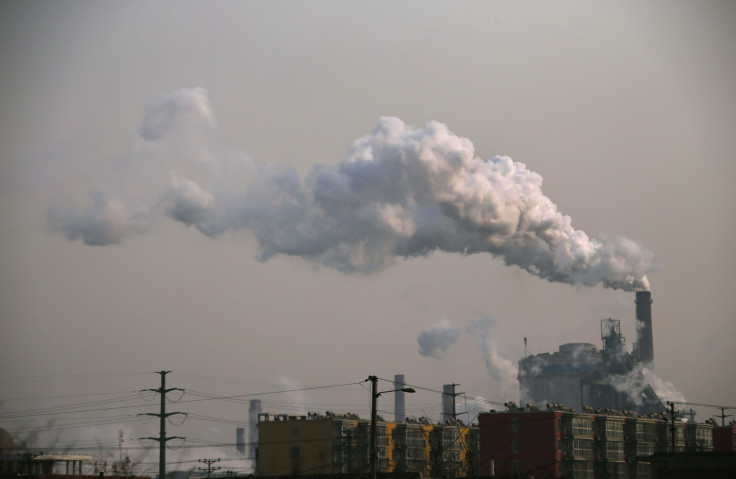How Climate Change Brings Disaster For The World's Poor: UN Report

A new United Nations report on climate change shows, to no one's surprise, that poor people across the world stand to lose the most in the face of global warming.
The study, published by the United Nation’s Intergovernmental Panel on Climate Change Monday alongside a 76-page summary, highlights among other things the ways rapid climate change stands to knock out the livelihoods of impoverished people across the world. Food shortages, flooding, the destruction of property, and malnutrition are some of the many ways climate change can spell disaster for the poor.
One of the biggest effects predicted is a steady decline in agriculture. As average temperatures continue to rise across the world, agricultural yields are falling in many areas that can no longer reliably support the crops they once hosted. While some colder regions, have seen longer growing seasons, for most of the world, climate change means a loss of once-reliable food sources.
As the report notes succinctly, “Not everybody is poor in the same way,” and declining agricultural outputs mean different things for people in different parts of the world. For impoverished subsistence farmers in developing nations, this means a direct loss of livelihood. For the urban poor who do not grow their own food, this means an increase in prices, making it harder to reliably afford food.
As temperatures continue to rise, clean water will also be increasingly scarce. Droughts in dry regions will only increase in the coming years, leading to a lack of clean drinking water for some and increasingly higher prices for others. Sea levels will continue to rise as well, placing those who live in low-lying areas in jeopardy. Rising sea levels also have the potential to flood some sources of fresh water such as reservoirs, lakes and estuaries.
With a lack of consistent access to food and water come a host of chronic health issues as infectious agents spread to regions once too cold for them. As climate change-related injuries increase, so will the demand for and cost of health care, meaning even less access for many impoverished people.
Climate change also hurts the poor in more direct ways. As sea levels rise, more and more previously inhabited coastal land will be submerged, destroying the homes and possessions of many poor people without the means to replace their possessions. Severe weather events such as flash floods and forest fires will worsen in severity as well, which will “significantly erode poor people’s assets and further undermine their livelihoods in terms of labor productivity, housing, infrastructure, and social networks,” the report notes.
It isn’t just the Third World poor that are threatened by rising sea levels, either. The U.N. report specifically names FEMA-specified flood zones in New York City and New Jersey as threatened, for instance, meaning that without action being taken, much of southern Brooklyn and Queens, as well as nearly all of Hoboken and Jersey City, could be under water by 2100.
While climate change has the potential to harm all poor people, poor women may be hit the hardest of all. As the report notes, areas already affected by crop instability place a disproportionately large burden on women to make up for lost income opportunities. In India, for example, women are more likely to take low-paying jobs to compensate for the loss of crops, and in Africa, husbands may prevent their wives from working fields of their own, “thereby undermining both women’s agency and household well-being.”
Children and the elderly are also under an increased threat as global temperatures rise. In the 1980s, a pair of back-to-back droughts in Zimbabwe led to a generation of physically stunted children who will earn less in their lifetime than other generations. Droughts will only increase in the coming years, meaning similar scenarios could be in store for children in other nations. Heat waves are also set to increase in the coming decades, putting the elderly at risk across the world.
The U.N. report is particularly troubling when one considers that wealth inequality is only getting worse as average temperatures continue to rise across the globe. According to Think Progress, the gap between the rich and the poor in America is at its highest since the Roaring ‘20s, spelling bad news for Americans without the means to save significant amounts of money.
The United Nations report comes as its member nations debate on signing a new series of environmental regulations in 2015. The United States, which did not adopt the 1997 Kyoto accords, will be a crucial actor in determining any policy’s effectiveness. If the United States and other big carbon emitters like India and China adopt effective measures, it could be a strong force in cutting greenhouse emissions and fighting climate change worldwide.
Top environmental advocates in the U.S. Senate used the IPCC report as evidence that the United States must work against climate change. Sen. Barbara Boxer, D-Calif., who chairs the Committee on Environment and Public Works, said in a statement that the report “adds a tremendous sense of urgency for Congress to wake up and do everything in its power to reduce dangerous carbon pollution.” Sen. Ed Markey, D-Mass., said that the report illustrates that “if we do nothing, we will have an increasingly ice-free Arctic and a world full of food and water shortages, with deadly consequences for humans and animals everywhere.”
---
(Note: Picture of 2011 Thailand flood by Shutterstock.com.)
© Copyright IBTimes 2024. All rights reserved.






















